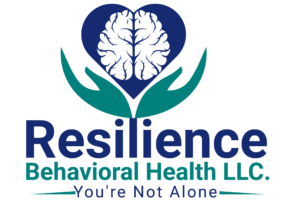Our Services
Diagnostic Evaluation
The initial evaluation is strengths-based and recovery-focused. The Diagnostic Evaluation is a comprehensive assessment that guides treatment and sets criteria for discharge. The Diagnostic Evaluation process is a collaborative process between the consumer and the Psychiatrist/Practitioner.
Medication Management
Medication management Services are a spectrum of patient-centered, treatment-provided, collaborative services that focus on medication appropriateness, effectiveness, safety, and adherence with the goal of improving health outcomes.
Patient‐centered approach to care – the service is individualized for a specific patient, focuses on the patient’s needs and concerns, and involves the patient in the care process.
Assessment of medication appropriateness, effectiveness, safety, and adherence. Consideration should be given to accessibility and cost of medications.
Collaborative approach to care that involves the patient, caregiver(s), pharmacists, and other healthcare providers
Focus on health outcomes
Telehealth/Video Conference:

Medication Management can be done in-person at the Resilience offices or via Telehealth telephone or video conferencing based on consumer’s preference.
Long-Acting Injectables (LAIs):
Another service provided by Resilience Behavioral within its Medication Management provision is providing consumers long-acting injectable (LAIs) of psychotropic medications. The LAIs are typically given once per month or as prescribed by the Doctor. Whether ordered by a Resilience Psychiatrist/Practitioner or by a consumer’s other healthcare provider, consumers can bring their medications to the Resilience offices to have their medications administered by a licensed healthcare provider or clinician.

Psychotherapies
Individual, Group and Family Therapy, Marital/Couple Therapy:
Dialectical Behavior Therapy
Interpersonal Therapy
CBT
Psychodynamic Therapy

Treatment
Resilience will utilize evidence-based practices that have the strongest possible scientific support. The consumer is an active participant in treatment and the family/significant others should be considered as active participants as well, unless their participation is refused by the consumer.
Alternative levels of care will be considered if improvement is not seen within a clinically appropriate timeframe, or if the consumer’s mental or medical status deteriorates to a point that the consumer cannot be safely managed in an outpatient setting. Treatment may require more intensive interventions earlier in treatment, during periods of crisis, and during symptom exacerbation
Treatment Planning
The Psychiatrist/Practitioner and consumer develop a treatment plan within the first 15 days and updated at least every 180 days. Treatment plans include behavioral and measurable objectives. Treatment objectives are based upon a recovery and strengths-based model.
Consumer Rights
Resilience is committed to informing the consumer about their rights and ensuring that the consumer understands those rights. RBH is committed to protecting the rights of consumers served.
Consumers are notified of the following rights, responsibilities, and procedures upon admission:
A. Access to treatment
C. Confidentiality
B. Emergency procedures
D. Complaints/Grievances
Resilience protects the consumer’s right to accept or refuse mental health treatment, consistent with Mental Health Law. Consumers are guaranteed information about all mental health and substance abuse opportunities/benefits.
Informed Consent
Every Resilience consumer is entitled to clear information about their behavioral healthcare and possible treatment options, including prescription of medications. Resilience staff comply with State regulations relating to consent for treatment. Staff obtain informed consent from consumers for treatment. When medication is prescribed, informed consent for medications are obtained.
The staff member will discuss the following information with the consumer or guardian in order to ensure that the consumer or guardian is being fully and accurately informed about the consumer’s treatment and that the consumer or guardian is able to give Informed Consent:
